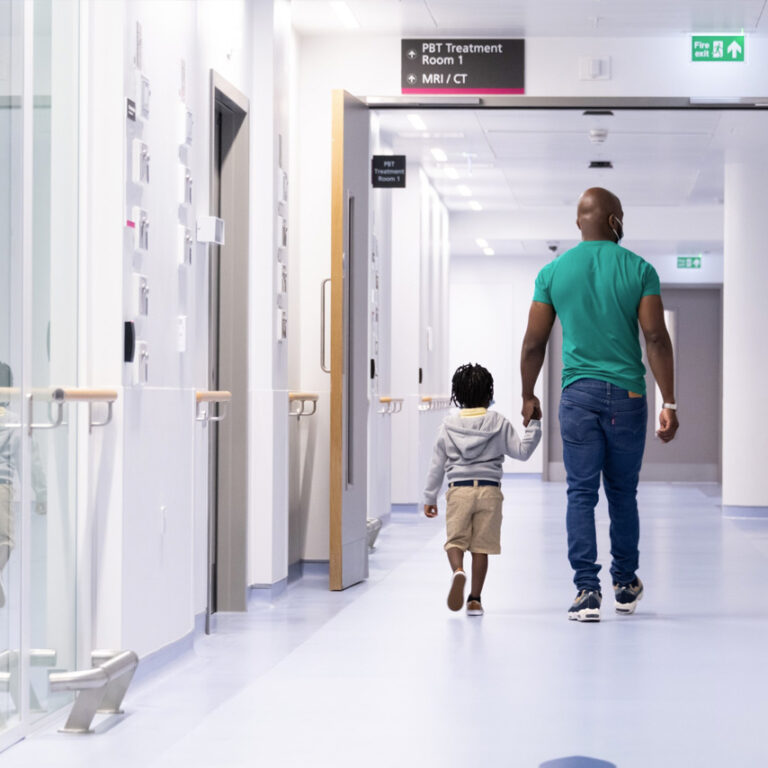When your child is diagnosed with cancer, it can feel like your world has been turned upside down. You may feel various emotions, from shock and disbelief to fear and anger. It’s important to remember that these reactions are normal and that you’re not alone.
The news affects your family, other children, friends, and school community. Everyone will feel a range of emotions, and it’s essential to be patient and understanding. This is when it’s vital to lean on your support system.
As a parent, what can I do to support a child with cancer?
Many resources are available to offer practical support to help you cope with the diagnosis. Your child’s doctor can provide information about treatment options and support services. There are also many online and in-person support groups for parents of children with cancer, such as Cancer Research UK and the National Cancer Institute if you are in the US.
It’s essential to take care of yourself during this time. Ensure you get enough sleep, eat healthy foods, and exercise regularly. Consider talking to a therapist or counsellor if you ever feel overwhelmed.
Remember, you’re not alone in this. Many people care about you and your child, and many resources are available to help you cope. With time and support, you will get through this.
How to tell your child who has just been diagnosed with cancer
It can be challenging to explain cancer to your child. Children can react differently to the news. Firstly, you should choose the right time and place to break the news. Give yourself the time to get over the shock of the diagnosis yourself, as it isn’t ideal to tell your child about their diagnosis when you are stressed or panicked.
Choose a time when you can both be calm and relaxed. Choosing a private place where you won’t be interrupted is also important. Be gentle and calm but always be honest and straightforward. It is best not to sugar-coat the diagnosis or make it sound like it’s not a big deal. Your child deserves to know the truth, even if it’s hard to hear. They need to know what physical changes to expect.
Tailor your explanation to your child’s age and understanding. If they’re young, you may want to use simple words like “sick” or “not feeling well.” You can give them more detailed information about cancer being a serious illness if they’re older. Let your child ask as many questions as they have. Being honest with them is essential, even if you don’t have all the answers yourself.
What can I do during my child’s cancer treatment?
Telling your child about their diagnosis and going through treatment can be very difficult for you as a parent. It’s essential to get support for yourself so that you can be there for your child. Many support groups are available for parents of children with cancer, such as Children With Cancer UK, who can help you through your journey, especially if you have more than one child to consider.
You will want to help your child with their treatment, which may involve taking them to appointments, helping them with their medications, and providing emotional support. Your child’s school should also be informed. But taking good care of yourself during this time is also important.
Ensure you get enough sleep, eat healthy foods, and exercise regularly. Consider talking to a therapist or counsellor. Reach out to your family and friends to let them know how they can help you. They can provide childcare, transportation, or emotional support during this difficult time.
It’s important to stay positive, even though things may seem tough. Remember that there is hope for your child’s recovery.
Involve them in decision-making
Children of all ages can be involved in decision-making about their cancer care, even if they don’t understand all the details or medical information. Here are some tips for involving children in the decision-making process:
- Younger children: Spend time asking young children for their opinions and preferences. For example, you could ask them to decide how they want to spend their time during treatment. This could include making regular phone calls to their friends or favourite family member, such as a grandparent.
- School-aged children: School-aged children can be involved in decision-making by asking questions, providing input, and making decisions. For example, you could ask them to research different treatment options or to help you pack things they want with them during a stay in the hospital.
- Older children and teenagers: An older child or teenager can be involved in decision-making by making decisions, advocating for themselves, and providing input. For example, you could ask them to choose a treatment plan or to help you communicate with their doctor.
It’s important to remember that every child is different. What helps one child cope may not work for another. The most important thing is to be patient, understanding, and supportive. With your help, your child can actively participate in their cancer care.
Learning to explore and embrace emotions
It’s important to normalise emotions and talk about them openly with children. This can help them to understand what they’re feeling and to develop coping mechanisms for dealing with complicated feelings they may face during their diagnosis and cancer treatments.
There are many books and other media that can help children to learn about their emotions. These resources can provide children with a safe space to explore their feelings and learn how to cope with them healthily.
If your child struggles to cope with their emotions, they may benefit from talking to a trained child cancer therapist. Their therapist can help your child to understand their feelings, ease their worries and develop coping mechanisms for when they feel overwhelmed or scared about the future.
Celebrate small and big victories
Childhood cancer therapy can be a long and challenging process, and finding ways to stay positive and motivated is essential. Celebrating small and large victories can remind children that they are making progress and are not alone in their journey.
Celebrating victories of all sizes can help to reduce stress and anxiety by providing a sense of accomplishment and hope for the future. It can also help children to develop a positive mindset and to learn how to cope with challenges. Family members can get involved by throwing milestone parties and treating your family to days out.
Start or join a support group
When your child has cancer, it can be a very isolating experience, and it can be helpful to connect with another parent or friend who is going through the same thing to help both of you feel less alone. Joining a support group can also help to improve your mental health. Support groups can provide a safe space for parents to share their experiences, release pent-up emotions, cry, ask questions, and get support from others in the same boat.
Support groups can inform parents about cancer therapy, clinical trials, and other resources. This information can be invaluable to parents deciding about their child’s care and help friends and family to understand what effective options are available.
Parents can be given hope by hearing stories from other parents whose child has cancer and has successfully navigated a treatment path; parents can learn that there is hope for their child’s recovery. Parents can also help raise money for cancer research UK by participating in sponsored events.
Create different spaces away from the hospital
There are plenty of reasons why creating different spaces away from the hospital for children during their cancer treatment is essential. For a start, it can give a child a sense of normalcy.
The hospital can be a very sterile and clinical environment, which can be overwhelming for children. Creating different spaces away from the hospital where they can enjoy a favourite normal activity can help them to feel more relaxed and comfortable.
Find a quiet space away from the hustle and bustle of the hospital, and make the room as comfortable as possible. The area could be in your own home, a relative’s home, or a local community centre or therapy centre that can offer you a room to use.
You could club together with other parents to make a community space accessible to children with disabilities. This could include providing wheelchair ramps, accessible bathrooms, and large-print books.
Make the space more comfortable and welcoming by providing soft furniture, pillows, and blankets. It is nice to include various activities that children will enjoy, such as play therapy, arts and crafts, games, movies, music and books.
By creating a comfortable and supportive space for children with cancer, we can help them to cope with the stress of treatment and feel more like themselves.
Try play therapy
Proton International London helps prepare children having Proton Beam Therapy by providing age and developmentally-appropriate information through play preparation for potentially frightening and/or painful treatment.
We do this through UCLH Play and Youth Services, which provides therapeutic, diagnostic, developmental, and specialised play interventions.

Play is an essential part of childhood and adolescence, and it is also crucial for children’s and young people’s mental, social, and emotional growth and well-being. Play therapy can be especially beneficial by providing a wide variety of play interventions and recreation to children going through cancer treatment. Play therapy can help children to:
- Become less anxious and more cooperative with their treatment.
- Increase their understanding of the hospital environment.
- Increase knowledge of their health, illness, and treatment.
Children can benefit from proton beam therapy due to its targeted approach and ability to minimise damage to surrounding tissue. But our Proton International London team also believes play therapy is vital in helping children cope with their illness and treatment.
The key benefits of visiting Proton International London:
- Expert-led healthcare provided by highly experienced healthcare professionals
- State-of-the-art treatment centre with world-class proton beam therapy treatment
- Clinical and admin teams who will fully support all aspects of care during the treatment plan
Focus on healthy lifestyle changes for the whole family
Making healthy lifestyle changes for your family is worth it for your health. When families work together to make healthy changes, they can support each other and make it easier to stick to them. You will also set an excellent example for your children to follow by making positive changes to your lifestyle.
When everyone in the family is on board with making healthy changes, it’s much easier to stick to them. However, it is important not to change everything at once. Start with small, achievable goals, and gradually make more positive changes as you get used to them.
Make it fun! There are many ways to make healthy living fun for the whole family. Go for walks, cook healthy meals, or play sports and active games together. Remember that it’s a journey, not a destination, so be patient and consistent with your efforts.
Positive lifestyle changes can include eliminating highly processed foods, sugary drinks, sweets, cakes, pastries, and unhealthy cooking oils like vegetable and seed oils. Getting enough sleep is also essential to good health. Adults need 7-8 hours of sleep per night, and children need even more. If you smoke, quitting is the best thing you can do for your and your family’s health.
FAQs about supporting your child through cancer
Can a doctor help me explain to my child about their cancer diagnosis?
Yes, a doctor or your child’s health care team can help you explain to your child about their cancer diagnosis. They can provide you with information about cancer in an age-appropriate way for your child.
They can also help you to answer your child’s questions and to address their concerns.
How much should I be telling my child about cancer?
The amount of information you share with your child about cancer depends on their age and maturity level.
It is important, to be honest with your child, but it is also essential to be age-appropriate. You do not want to overwhelm your child with too much information too soon.
How can I stay positive throughout my child’s diagnosis?
Staying positive throughout your child’s treatment can be challenging, but it is vital for your child’s well-being. Here are some tips on how to stay positive:
- Focus on the good: Getting caught up in the negative aspects of cancer is easy, but focusing on the good things is also important. Remember that your child is still the same child they were before they were diagnosed with cancer. They still have their own unique personality, quirks, and interests.
- Take care of yourself: It is essential to take care of yourself both physically and emotionally. Ensure you eat healthy, get enough sleep, and exercise regularly. You should also find time for activities that you enjoy. Taking care of yourself will help you to be better able to care for your child.
- Connect with others: Talking to other parents who have children with cancer can be helpful. They can offer support and advice. There are also many online and in-person support groups available. Talking to your child’s teachers can help them to organise school work around their treatment schedule.
- Don’t give up hope: It is important to have hope for your child’s future. There have been many advances in cancer treatment in recent years, and the chances of survival are improving.
Remember that you are not alone in this. Many people care about you and your child and are willing to help. By following these tips, you can stay positive throughout your child’s diagnosis and treatment.
In summary
A childhood cancer diagnosis can be a demanding and stressful time for children and their families. It is important to find creative ways to support your child, such as making time for play to allow children to express themselves and cope with stress. There are many activities that you can do with your child that are both fun and therapeutic. This could include art therapy, music therapy, or just spending time in nature.
Connecting with other families who have children with cancer can be an excellent way for your child to feel supported and to learn from other children who are going through the same thing. Your child may experience a range of emotions after their diagnosis. Be patient with them and allow them to express their feelings in their own way, and don’t be scared to seek professional help if needed.
By finding creative ways to support your child after a cancer diagnosis, you can help them to cope with the stress of treatment and to feel loved and supported.





